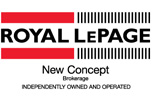
As I’ve been busy this year as well, it’s already September, and in the local area, the autumn season is approaching with the leaves beginning to change color. I can feel that autumn is at our doorstep.
I hope you are always healthy and have happy days.
For the past decade or so, I have lived with the pleasure of seeing my clients settle down in the Greater Toronto Area and lead stable lives while increasing their assets. Thank you always.
During that time, whenever I met with my clients, whether it be at the Toronto real estate seminar or consultation in Korea or directly engaging in transactions here in Toronto, I always emphasized and informed them about the significant differences between Canada’s Toronto and Korea’s economy and real estate, why renting is a loss and should be avoided, and why it is best to purchase a property as soon as possible even if renting is necessary.
As this content has always been the most challenging for decision-making, many people still have difficulty making decisions or asking questions about it. Therefore, I will first inform you of the numerical difference to help with your decision-making. (I will soon organize and post a detailed explanation of the differences between the economic and real estate structures of Canada’s Toronto and Korea, why Toronto’s real estate is a highly recommended investment destination, and why renting should be avoided as much as possible.)
The subject is based on the comparison of economic value (asset increase/decrease) between renting and purchasing, based on the criteria of pure cost expenditure and expected income.
** Targeted at a small townhouse worth $400,000
1. Renting
For a $400,000 townhouse, the typical monthly rent is around $1,700-$1,800. Assuming a rent of $1,700, the annual expenditure would be $20,400.
Conclusion: Annual cost of (-)$20,400
2. Purchasing (with a $150,000 down payment and borrowing $250,000 in mortgage)
A) Expenditure
1) Mortgage repayment expenditure: $1,182 per month (based on the current interest rate of 3%) * 12 months = $14,184. Among these, principal repayment is $7,800, and interest expenditure is $6,384.
2) Property tax: average $230 per month * 12 months = $2,760
3) Home insurance: average annual cost of $600
4) Compensation for interest on $150,000 down payment deposit (interest incurred if you deposit $150,000 instead of making a down payment for rent): 1.5% per year in Canada: $2,250 (calculated as $150,000 * 1.5% per year).
Subtotal of expenses: (-)$11,994 ($6,384 + $2,760 + $600 + $2,250)
B) Income (Real Estate Price Increase)
Average annual real estate value increase rate for the entire Toronto for the past decade: 6.5%
Even if we only expect a 5% annual increase in the future, 5% of $400,000 = $20,000 annually
Subtotal of income: (+)$20,000 per year
Conclusion for purchase: (+)$8,006 per year (20,000 – 11,994)
Difference in economic effect between renting and purchasing: $28,406 per year (8,006 + 20,400)
In other words, after one year of purchasing, assets will increase by $28,400 compared to after one year of renting. If five years pass, the difference will be about $150,000, and in ten years, the difference will be at least $300,000.
(Even if there is no increase in real estate prices after one year, it will increase by $8,406. Assuming that there is no increase in real estate prices for five years, there will be a difference of at least $40,000, and in ten years, there will be a difference of at least $80,000.)
The above calculations are based on simple absolute numbers, and if compound interest that accumulates over time is taken into account, a 50% increase in price after ten years could actually be 70-80%. (In fact, from 2003 to now in 2013, prices have risen by 65% in absolute terms, but in some areas, the actual transaction price has increased by more than 100% or even more than that of ten years ago.)
(Note: If you sell the house later, there will be additional costs such as acquisition tax and real estate brokerage commission, which is about 5-6% of the total housing price. If you rent and then buy, the expenses will be the same for both renting and purchasing, so it doesn’t need to be included in the calculation. If you only rent, you just need to consider the cost of renting.)
Once you experience renting and then later make a purchase, it is considered the safest and most reliable option – the most correct and universal one that applies to everyone – because in terms of the final outcome, in a difficult economic environment like Toronto where it is challenging to earn income, this ironic situation can become the most direct cause of hindering household economic growth and causing the most pain to households. This has happened too often in Toronto over the past decade, based on my real estate experience and statistics.
Over the years, as I helped my clients who were immigrants or international students, I compared the current household economies (assets) of clients who started with renting and those who bought from the beginning. Unfortunately, there is a statistically significant difference in asset size between households that have rented for a long time and those that have bought from the start.
Once you start renting, the duration of your tenancy can easily extend for one year, two years, five years, or even longer, regardless of your intentions. In most cases, your assets will decrease significantly rather than increase during that time. If assets do increase, it is still difficult to live in this challenging immigration environment, so if they decrease… it is only natural that you will suffer significant economic pain.
Canada’s economy is healthy and has a strong foundation that everyone can rely on. The socialist color of the economy ensures that everyone enjoys equal benefits, so the average increase in real estate prices (less than 3-4% per year) does not cause people significant economic pain due to inflation (2.5-3%) and property taxes (0.5-1%). The government does not ignore the fact that citizens are suffering economically.
As I have always emphasized, if you focus on real estate first and approach it realistically, life in the Toronto area can generally be guaranteed to be comfortable.
The economy and real estate market in Toronto are the exact opposite of those in Korea. Rather than trying to apply Korean experiences, theories, or standards, it is strongly recommended that you find the best path that accurately fits the Toronto economy, customs, and environment and take a straightforward approach.
As mentioned above, I will provide my opinion on the economy, real estate, and investments in the near future.
I hope you always stay peaceful and happy in your household.
Thank you.
Sales Representative
1-416-554-8949
Website: www.torontoprecondo.ca
Email: ian@torontoprecondo.ca


